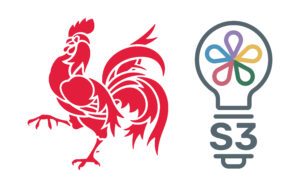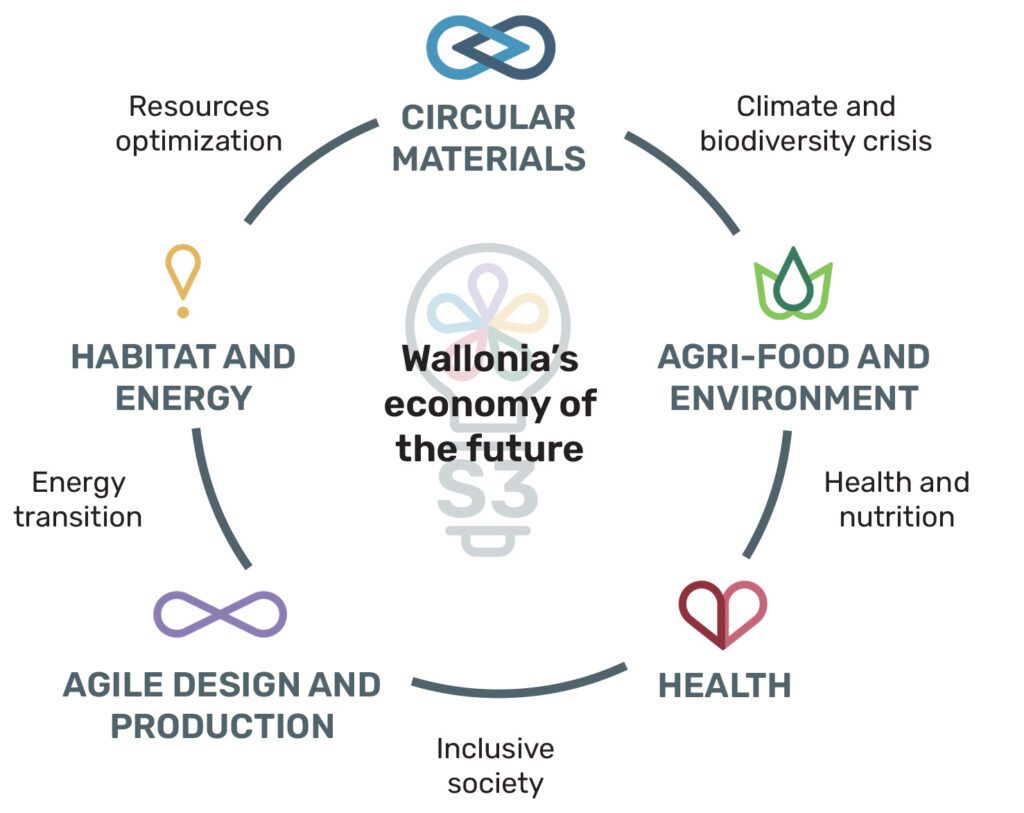Wallonia S3
75% of the annual Walloon budget for research and innovation is concentrated on the priority sectors defines in the Walloon S3.
Context
The Smart Specialisation Strategy (S3) concept was introduced by the European Commission as part of its growth and jobs agenda, with the aim of providing European regions with a new generation of regional research and innovation strategies. This is a strategic approach to economic development, enabling each region to identify and develop its own competitive advantages.
The European Commission is asking all European regions to adopt an “S3” strategic framework for their innovation policies: what objectives are being pursued in the region? what are its preferred areas of specialisation? what support and funding mechanisms are in place for projects? How does this strategy impact on its selection and evaluation processes?
The stakes are high: the S3 is an ‘enabling’ condition giving access to funding from the Regional Development Fund (ERDF); the Commission has also strengthened the criteria linked to this condition for the 2021-2027 programming period.
Beyond this, however, the S3 constitutes a strategic framework for Wallonia’s research and innovation policy and industrial policy.
As part of the S3, 5 Strategic Innovation Domains (SIDs) have been defined around 6 societal challenges (in boxes in the diagram above).
Wagralim with the support of Greenwin, is coordinating DIS-5 “Agri-food chains of the future and innovative management of the environment”, which includes 6 Strategic Innovation Initiatives (SIIs)
More information : Wallonia S3 & DIS
DIS 5: Agri-food chains of the future and innovative management of the environment
The Strategic Innovation Area “Agri-food chains of the future and innovative management of the environment” covers innovative activities to support the emergence of products and services with high added value and high market potential within a sustainable and circular agri-food system. Wallonia’s current strengths in agri-food research and innovation are centred on: food quality and safety; sustainable and circular agri-food systems; nutritional and functional ingredients; and industrial biotechnologies (white biotechnologies).
In order to ensure the long-term sustainability of the natural ecosystems (soil health and water cycle) on which the production of healthy food products depends, Wallonia’s potential in the field of environmental services for monitoring ecosystems and biodiversity, agroecology and sustainable agricultural/forestry innovation will be strengthened. Wallonia also has strong RDI skills in biodiversity and green and blue infrastructures, particularly in the following areas: natural resource management, environmental clean-up technologies (soil, air and water) and, in particular, soil monitoring, treatment and health (brownfield sites, soil conservation).









